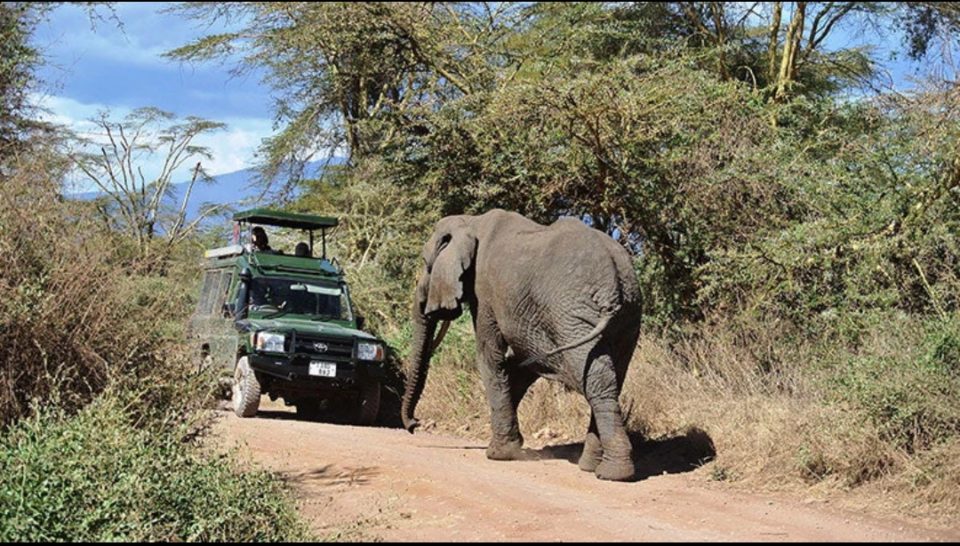By Osita Mbonu
The 68th meeting of the UN Tourism Regional Commission for Africa (CAF) and Thematic Conference on “Boosting Social Impact and Education in Tourism through AI, Innovation, and Creative Industries in Africa” will be held from June 11 to 13, 2025, at the Transcorp Hilton Hotel, Abuja.
Hosted by the Federal Ministry of Art, Culture, Tourism, and the Creative Economy, the event will welcome delegates from UN Tourism, led by the Secretary-General, as well as tourism ministers from the 51 member states of the Commission. The agenda includes strategic policy discussions, exploration of emerging trends, and fostering collaboration to advance sustainable tourism development.
President Bola Ahmed Tinubu and Mr. Zurab Pololikashvili, Secretary-General of UN Tourism, will serve as special guests of honor, with Barrister Hannatu Musa Musawa, Hon. Minister of Art, Culture, Tourism, and the Creative Economy, as chief host. The event will also attract stakeholders from both the public and private sectors, industry leaders, and the media.
Nigeria’s role in advancing AI adoption in African tourism
Nigeria’s hosting of the 68th CAF meeting presents a unique opportunity to influence the continent’s adoption of artificial intelligence (AI) in tourism strategies. With its recently launched National AI Strategy—developed through collaboration among government, academia, and industry—Nigeria is recognised internationally for its inclusive and ethical approach to AI. This strategy highlights AI’s potential for economic growth, innovation, and transformation across sectors, including tourism.
By hosting the event in Abuja, Nigeria can showcase its advancements in AI and encourage other African nations to adopt similar frameworks. AI has the potential to enhance visitor experiences, improve data analytics, and boost operational efficiency within the tourism sector.
Nigeria’s AI Collective Ecosystem fosters cross-industry collaboration and inclusive innovation, offering a model for responsible and effective AI integration in tourism policies across Africa. The country’s leadership in ethical AI governance and capacity-building initiatives provides standards that can guide Africa’s tourism sector in leveraging AI for social impact, education, and the creative industries.
Bringing together tourism ministers and stakeholders at this event will likely accelerate AI adoption in African tourism through knowledge sharing, policy harmonisation, and partnerships. This aligns with the African Union’s Continental AI Strategy, which Nigeria actively supports, aiming to position Africa as a leader in responsible AI development for economic diversification and social inclusion.
Ultimately, Nigeria’s hosting of the CAF meeting will serve as a catalyst for AI-driven tourism strategies in Africa by demonstrating practical applications, fostering regional collaboration, and setting ethical and innovative standards for AI use in tourism.
The critical role of electricity in tourism and AI
Reliable electricity is fundamental to the development of tourism and the adoption of AI in Nigeria. Tourism facilities—hotels, resorts, museums, and cultural centers—require uninterrupted power for operations, maintenance, and delivering quality services to visitors.
Frequent power outages increase operational costs for tourism businesses, often forcing reliance on expensive generators, which diminishes competitiveness. Consistent electricity supply supports the growth of hospitality infrastructure, attracts investors, and stimulates job creation.
While renewable energy sources, especially solar, offer sustainable alternatives and help reduce environmental impact, the high cost of solar equipment remains a challenge.
AI technologies also depend on a stable power supply. Devices and applications require regular charging and operation, making reliable electricity essential for effective AI deployment.
Without addressing fundamental infrastructure needs—such as regular electricity, good road networks, and security—progress in tourism development and AI adoption will remain limited. Prioritising these basics is crucial for realising the full potential of Nigeria’s tourism sector and its digital transformation.


